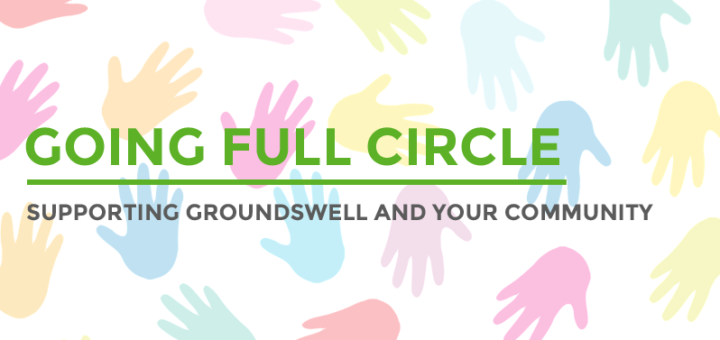Going Full Circle: Letting Groundswell Support Itself

As we’ve seen so far, Groundswell is an excellent tool, or rather, guide to inspiring a successful and well connected business. The biggest and, my personal favourite, is the establishment of communities. There is however one aspect to consider. How do you sustain or support it in the long term? Well, first it’s important to recognize the difference between traditional and Groundswell support.
Traditional support methods include call centres, locally or outsourced overseas, or support via online through forums or contact forms. These ways certainly have the benefit of being able to be directly communicate with your audience. The problem is that while you can definitely get some support to customers, in can be rather expensive and/or very inconvenient to the customer. Myself included, many people do not like to make phone calls these days.
The Groundswell method incorporates the use of communities as well. However, it’s not as simple as simply creating a forum and having a bunch of people talk. It doesn’t work that way. The only way to support Groundswell in supporting your customers is to ensure that consistent participation is enacted on your part. Chapter eight mentions- five ways to do this (Bernoff & Li, 2011, p.174-176):
- Start small but plan big. I can personally tell you from projects and, even video games, that starting too big can be a big problem. It can run up expenses and even create a open and empty image of your business or identity. Starting small means you take the time to learn what’s essential from your customers/users and then establish what you need. This however doesn’t mean to neglect the future. Planning for a large future is not the same as immediately investing but it will offset surprises and make you more prepared for if it happens.
- Reach out to your most active customers. BestBuy Canada and Amazon Canada do this very well. If you’re a recent or active customer, you can expect an email in the morning asking you for your opinion on your recent purchase. They’ve established a community on the product itself and they reach out to the experts to offer advice and honest answers to everyone else. This way, the support is handled via the customer level.
- Drive traffic to your community. Nobody will know you exist unless you advertise yourself and take the initiative to establish a proper SEO (Search Engine Optimization) on your website.
- Build in a reputation system. Establishing a reputation system gives credit and something your community members can be proud of. It allows you to establish and create experts that can directly influence your customers and provide support. The example below, is of BBYTerence who is recognized as a Community Manager when I was looking for info on a certain *cough* fantastic *cough* video game.

- Take advice from the customer. If you’re ever on a retail website, sometimes you’ll see
a button that says feedback or “Rate this page” (much like the red arrow shows on the BestBuy website screenshot below). Successful businesses take into account the advice from their customer on what works and doesn’t for the betterment of the community from their eyes. Remember, a business is a two way street; there’s you and then there’s the customer.
The Business Approach
So how do you look at supporting the Groundswell from the angle of a freelance web developer? It’s tough. Freelancing has a certain individual attitude to it that comes from businesses with many employees and partners.
You have to follow some of the same rules as described above you just might do it differently. For example, as a freelancer, you’re not going to have hundreds of people looking for support from you and because of this, it would be a waste of time and money to establish a community site. It can however be successful to implement this via social media because of the personal touch that freelancing has attributed with it. Take advice, share advice and implement and show ideas via a platform such as Twitter can be just as effective in this manner.
SOURCES
Bernoff, J., Li, C. (2011). Groundswell: Winning in a world transformed by social technologies (expanded and revised edition). Boston, MA: Harvard Business School Publishing


